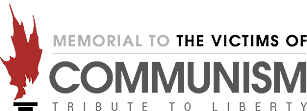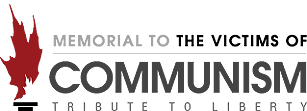
When I was growing up the everyday wonders and curiosity of childhood were eclipsed by the harsh realities of life. The ubiquitous secrets and lies of communism made my head spin, social problems prevailed, and empty stores were the rule, never the exception.
As the saying goes, it seems like only yesterday that the pervasive repression and economic and political struggles of the system became almost intolerable for so many of us.
My grandfather left Poland and went to France at 17, and became very active in the resistance during the Second World War. My grandmother was born in France, and my mother was eventually born there. Once Germany declared capitulation, my grandfather decided to take his wife and daughter back to his home country. In 1948 they returned to Poland and were the last group of Poles returning from France after the war. However, once he returned, my grandfather immediately regretted it.
My mother was almost 18 when she arrived in Poland from France, and life was not easy for her there. For three years she struggled to adjust to life, learning the language and trying her best to fit in-- but everything seemed to be amiss. Eventually she married, and I was born in 1952.
In 1957, my mother (or “Mamka” as I called her), went to visit her uncle in England. She attempted to stay, to get away from the hardship and oppression, and her plan was for me to follow soon after. Mamka remained in England, eventually remarrying, and her new husband adopted me. She tried, in vain, to get me over to England for six long years. In 1963, my grandmother passed away, so Mamka was able to come back to Poland on a visa to attend the funeral. When she tried to go back to England, she was forbidden to leave the country and was forced to stay in Poland for five more years.
Times were very hard for all of us. Food was scarce. We had very little to put on the table as, at that time, the production of food was going to the USSR.
I remember my aunt waking me to go with her to the butcher at 4 in the morning, to try to get a ration of meat. When we arrived, there was already a line up that wound around the block. I went to the front of the shop and saw that the store was empty – only a solitary cow’s head hanging in the window. I asked my aunt, “why are we lining up? There’s nothing in there!” She replied that we should still wait so that we might “get a piece of the cow’s head and we can make something out of it.”
Many times I would come home from school hungry, and be told there would be a potato or some cabbage-- or often just a single slice of bread-- for dinner. And there were times when we were lucky to have that. I didn’t know what a banana or an orange was, let alone most foods, until much later in life when I left Poland to live in England.
When I was very young, my mother worked at a health clinic for children, but many people also knew she could speak and write French. They would often ask her to write to the French government to obtain their pension or for other official reasons. On one such occasion she was offered a very unusual form of payment. “I have only one egg to give you if you would help me,” the man told her. She agreed, and my mother and aunt proceeded to make pasta with that prized egg--a very rare treat.
At school, the literature was besieged with Stalin propaganda. Referred to by my teachers as “the father of the nation,” I would come home and regurgitate what I had learned about “our father,” proclaiming the details of his "wonderful works." I would echo, "Our father Stalin, is giving us everything! We have everything we need.” My uncle, who had been part of the underground during the war would say “No my child. We have another story. But that story may never leave this house.”
And so I existed on two sides of one coin, wrestling with two sets of historical facts. I was conflicted and utterly dismayed.
When my stepfather died in 1968, Mamka was finally able to go back to England to settle his estate and get away from the clutches of the system. Once again she worked to get me away from Poland’s ongoing woes. Eventually she was successful, and when I arrived in England, we were happily reunited. However, in time I left to attend school and to accept various career opportunities. For most of our lives, my mother was in one country, and I was in another.
I read everything I could get my hands on that was more moderate, and finally understood the truth. The reality of the deceit I was force-fed in school was clear, and that affected me significantly. And I resented the fact that the lies of communism had robbed my mother and me of so many years together.
The communist system also embittered Mamka, and I was determined to give her a better life. When I moved to Canada, it took me ten years, but I was ultimately able to bring her here. Mother and daughter were finally reunited, and it was wonderful. We took care of each other, worked on creative projects and spent holidays as a family. My dear Mamka passed away in 2016.
While I am very grateful for the last years we had together I still experience a sense of loss—not only for Mamka but also for the loss of the most significant and formative years of my life.

